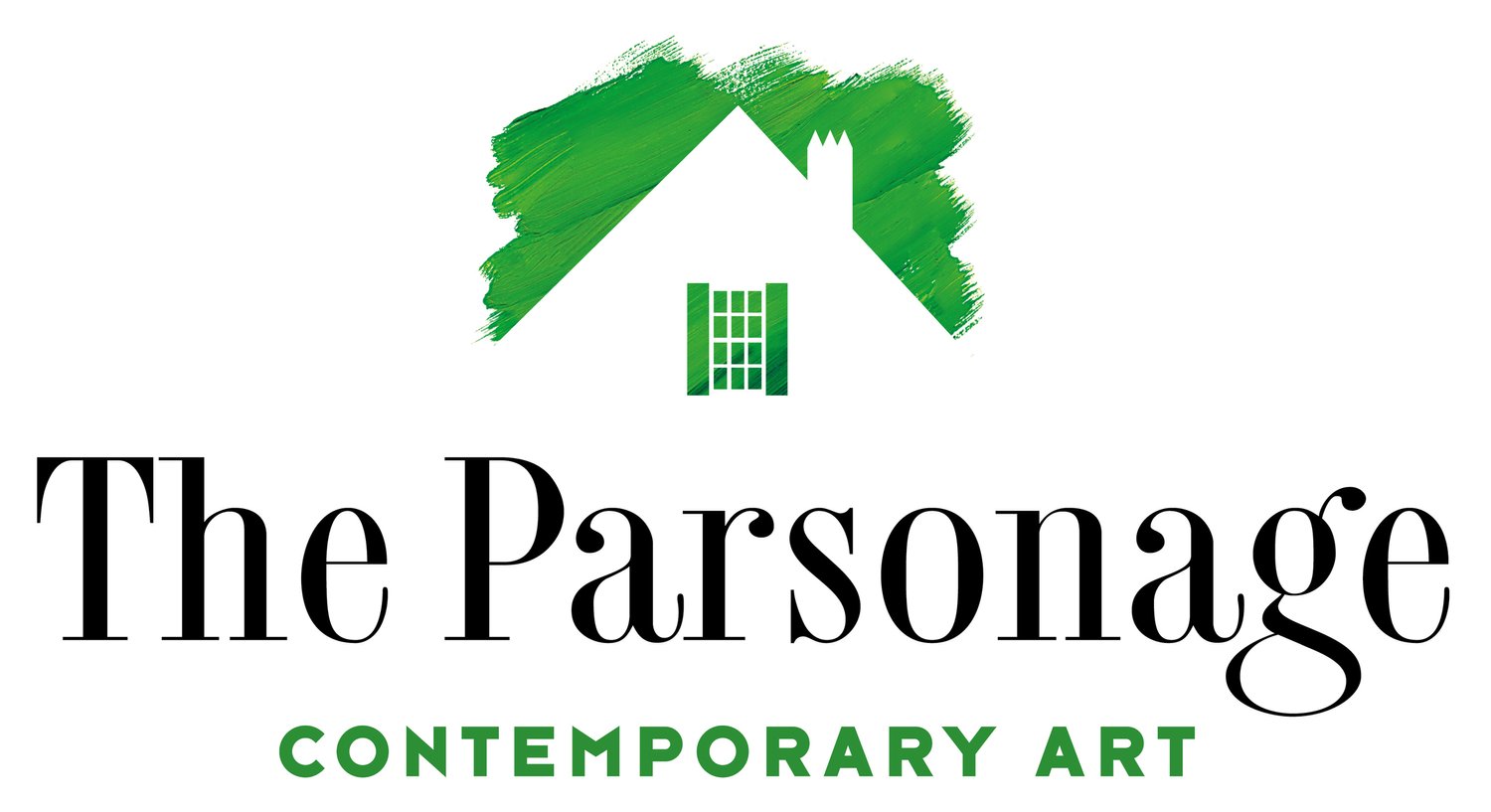Ian Trask is a Maine-based sculptor and multimedia artist who transforms waste materials into objects and installations with new purpose. In a digitally saturated world, Trask has a taste for outdated, analog relics. However, the objects he repurposes are not merely recycled to assuage consumer guilt or resurrected to feed nostalgia. In works like Portal, at the center of this space, Trask suggests new ways of producing—or better yet discovering—value. Discarded, overlooked objects recombine and reassemble to beautiful, sometimes whimsical effect, reminding us that nothing is intrinsically or immutably worthless. Nor are humans the ultimate or only arbiters of worth.
The title of this exhibition is drawn from the Book of Job, specifically its denouement, when the Lord finally responds to the protagonist’s search for a justification for his suffering. Rather than offering Job direct words of solace or explanation, God instead chooses to expound upon the limits of human imagination and comprehension.
Then the Lord answered Job out of the whirlwind: “Who is this that darkens counsel by words without knowledge? Gird up your loins like a man; I will question you, and you shall declare to me. “Where were you when I laid the foundation of the earth? Tell me, if you have understanding. Who determined its measurements—surely you know! Or who stretched the line upon it? On what were its bases sunk, or who laid its cornerstone when the morning stars sang together and all the heavenly beings shouted for joy? (Job 38.1-7)
These rhetorical questions can make anyone who reads the book feel inadequate, to say the least. “But underneath that all-knowing tone,” Trask insightfully notes, “is an admiration of the beautiful complexity of the world; and implicitly contained within that complexity is humanity (and human suffering). There’s a hint that to understand our suffering we need to understand the complexity of all things.” And even if this pursuit is asymptotic—destined never to reach completion—it orients us in the right direction, encouraging us to discover the intricate tapestry into which our lives are woven, with perfect imperfection.
